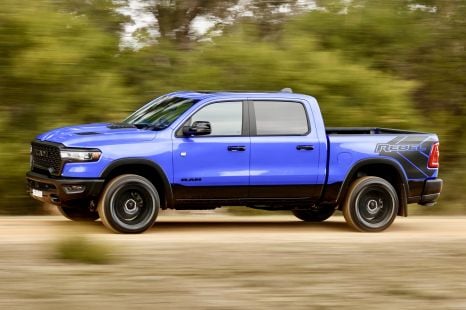

Max Davies
2026 Ram 1500 Rebel review
5 Days Ago
Due for a facelift by the end of 2024, we wanted to see if the existing Audi A3 Sedan still stacks up, given recent price rises.
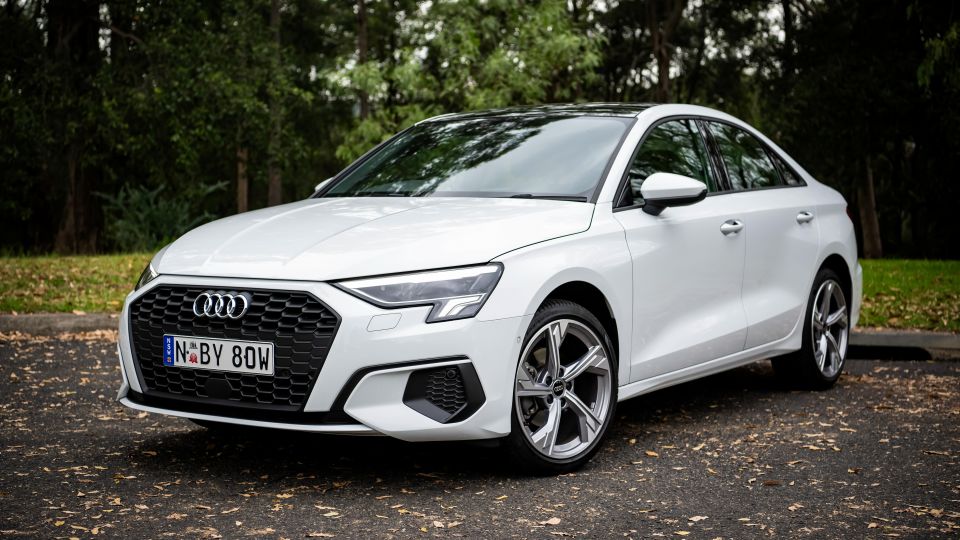
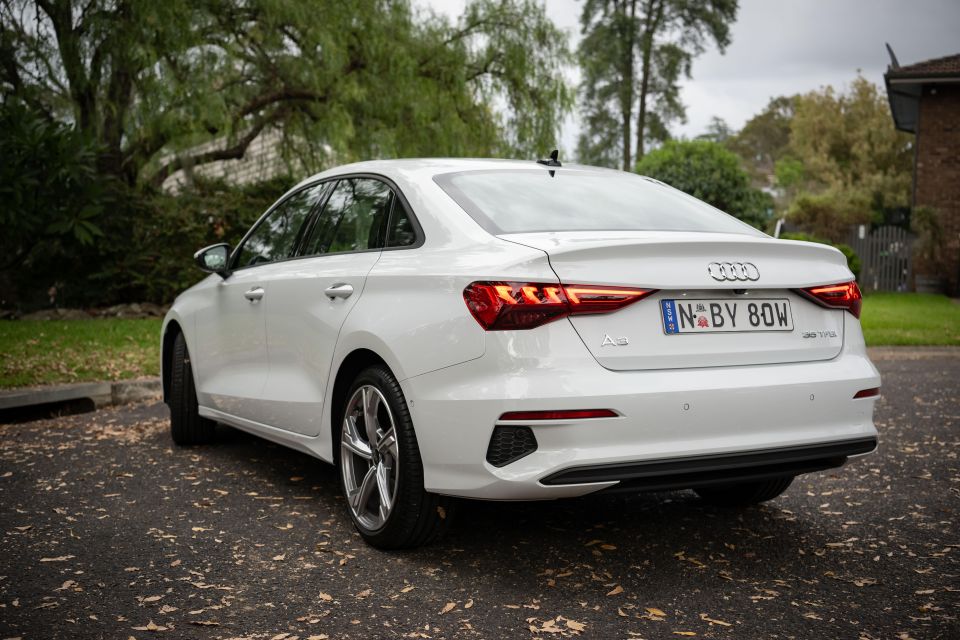

Quickly see how this car stacks up against its competition. Select any benchmark to see more details.
Where expert car reviews meet expert car buying – CarExpert gives you trusted advice, personalised service and real savings on your next new car.
You may have seen there’s a facelifted version of the Audi A3 coming to Australia by the end of this year.

But what if you need a car sooner, and you’ve spotted an A3 Sedan that you like the look of? Should you go for the current model, or wait for the new one?
In this review I’ll cover off the current Audi A3, in particular this base 35 TFSI sedan, and you’ll see why it still stacks up well – and why you might not really need to pay more for a higher grade.
Rising costs are a constant in today’s market, and the Audi A3 range is not immune from increases to list pricing.
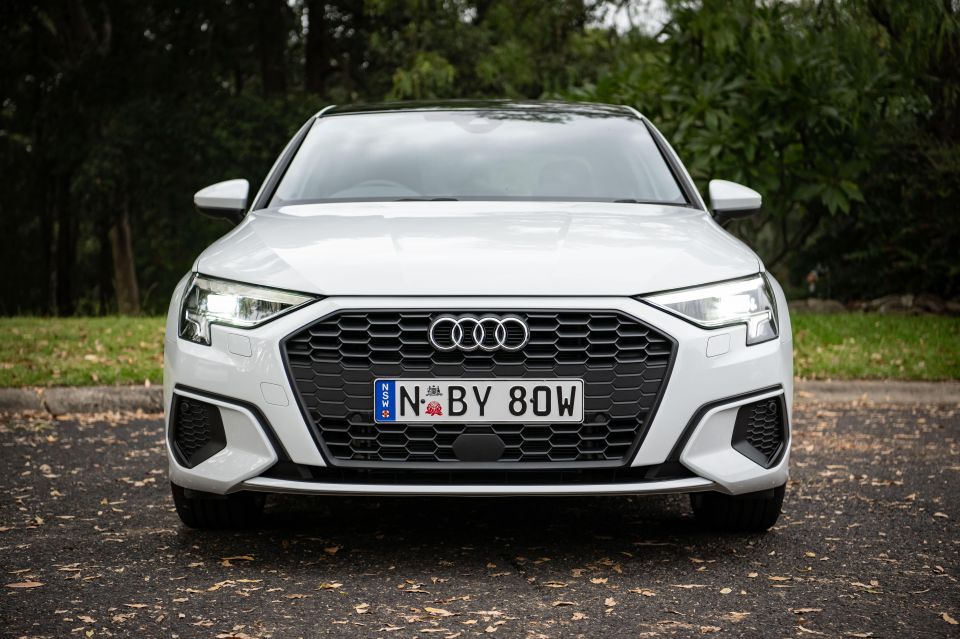
2024 Audi A3 pricing:
Prices exclude on-road costs
To see how the A3 compares with its rivals, use our comparison tool.
Buy your new car without the stress. It's fast, simple and completely free.

Great service from Travis and team, second time I have used this business would not hesitate to recommend them to anyone
Craig C.
Purchased a Ford Ranger in Sunshine Coast, QLD
CarExpert helped Craig save $7,224 on his Ford Ranger, now let us save you on your next new car.
Get your BEST priceI’m a huge fan of the design of the cabin in the current-generation A3 lineup, as it blends the Teutonic expectation of subtlety in style with excellent functionality.
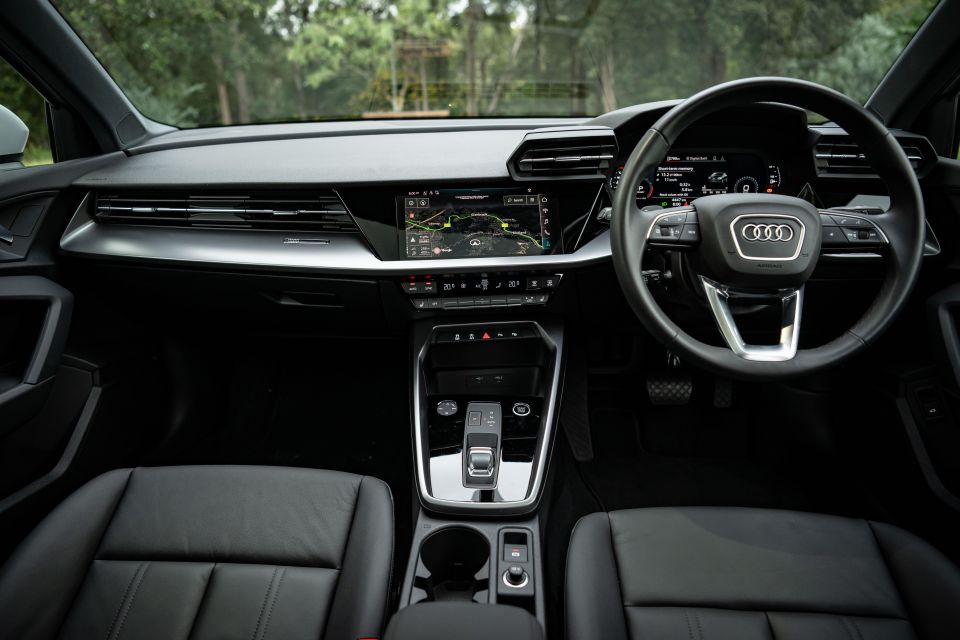
From the polished silver-look finishes across the dashboard to the angular design elements, and the colourful and easy-to-use screens in this car, it exudes an effortless classiness but also understated opulence.
You can read between the lines there, but it’s certainly not as flashy as some of its competitors in this segment, and to me, that’s to its benefit.
The 10.1-inch touchscreen infotainment system is easy to get your head around with intuitive menus. It has wired and wireless Apple CarPlay and Android Auto, and I had no issues with connecting and reconnecting my phone during my time in the car.
Perhaps the only downside about that screen is there are no physical buttons down the side, nor are there dials for volume control or tuning. But there is a small rotary wheel-style dial down near the gear selector, which takes a little bit of learning and isn’t for those who might need to use a dialling wand (shoutout to all the OG Simpsons fans).
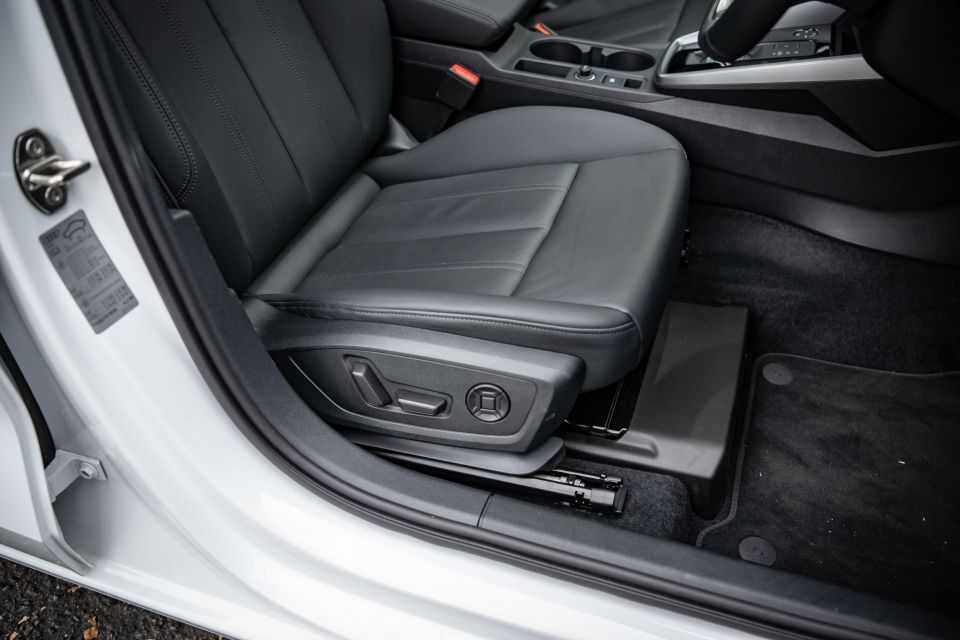
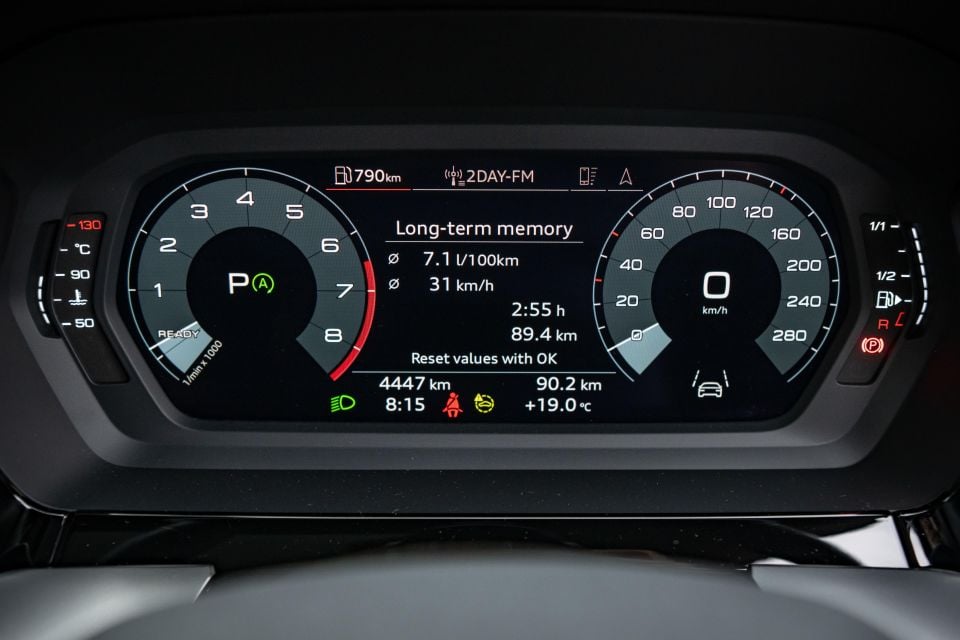
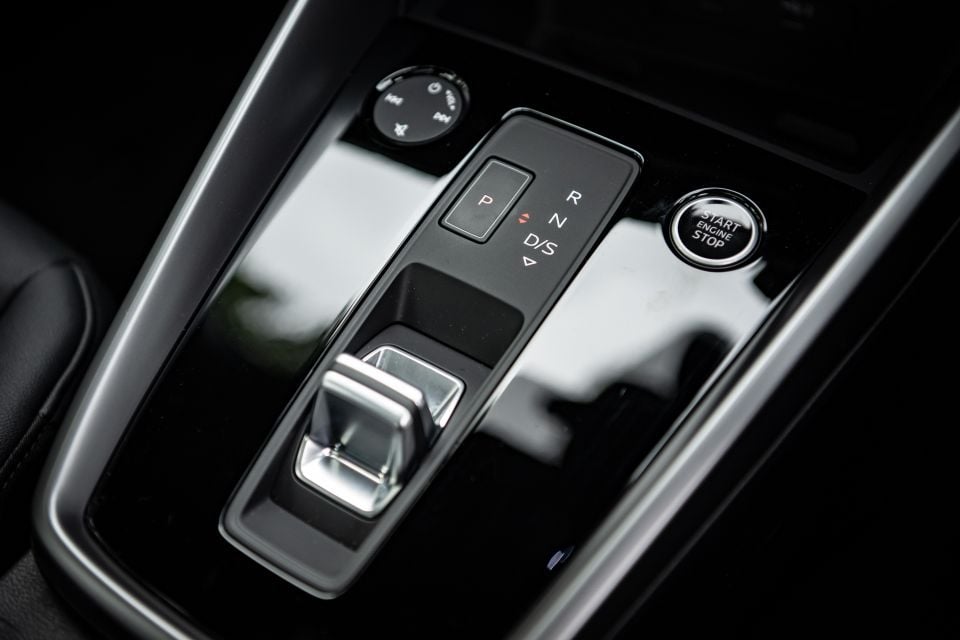
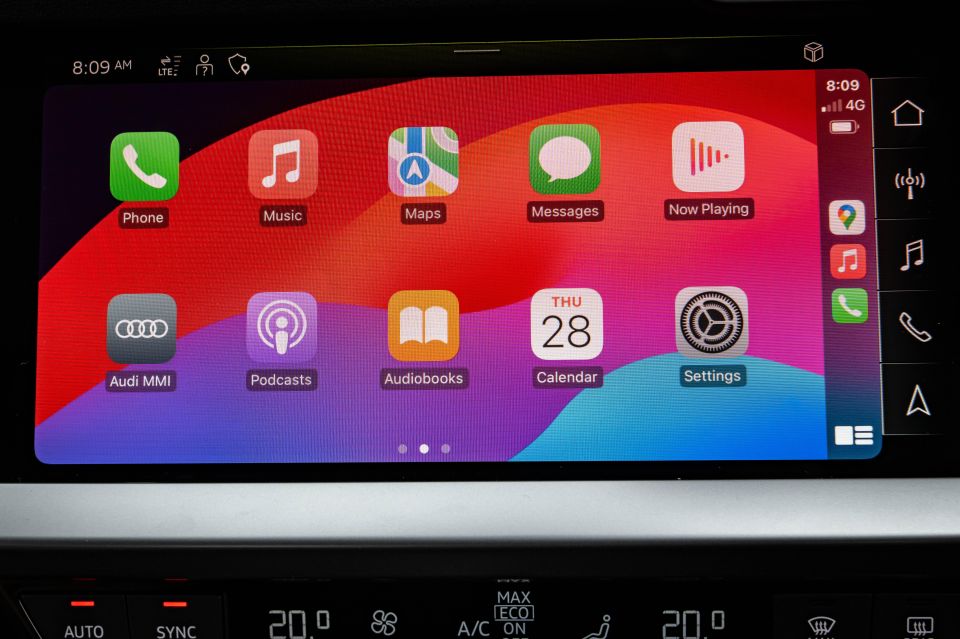
There’s a clear and simple array of climate control buttons for simple adjustments. If you need to quickly turn up the fan speed or down the temperature, there are buttons for that. There are also heated seat controls as buttons too, but those are optioned here – you don’t get them standard.
The 10.5-inch driver’s info screen is intuitive and crisp. There’s no head-up display, but you can configure the main display to show your speed clearly.
Storage in the cabin is very good, with decent bottle holders in the doors (sadly not lined, though), cupholders between the front seats, a wireless phone charging dock, and you’ll also find two USB ports in that same area. There’s a small centre console bin under the armrest.
One thing that is peculiar is the driver’s footwell has something in the way. There’s a black box intruding from under the seat, and if you’re someone who likes to stretch their legs or move their feet around on longer trips, you might find that it is a little bit squishy in the driver’s foot zone. I’ve asked Audi what it is – will update if I hear back!
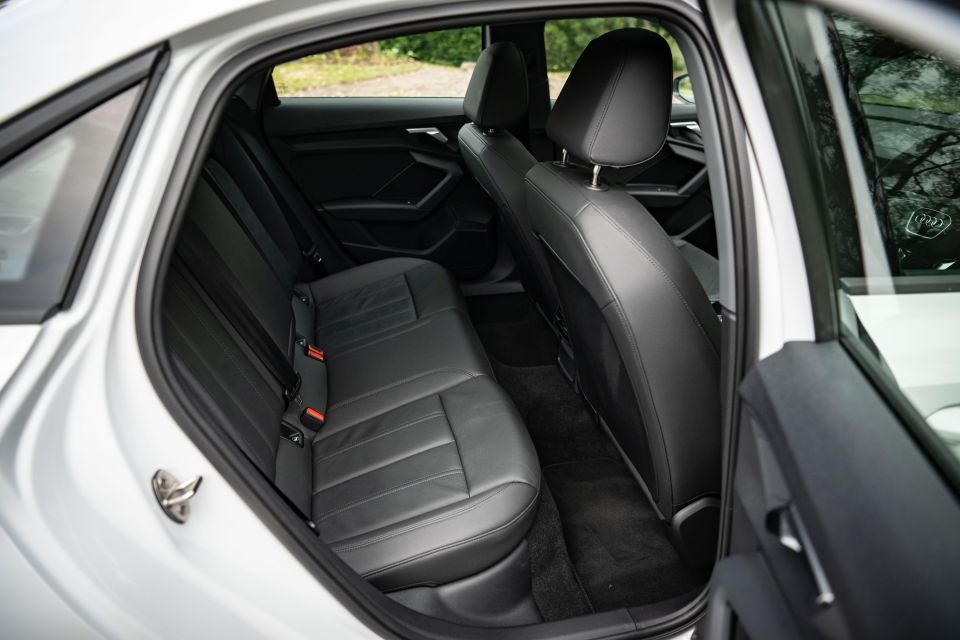
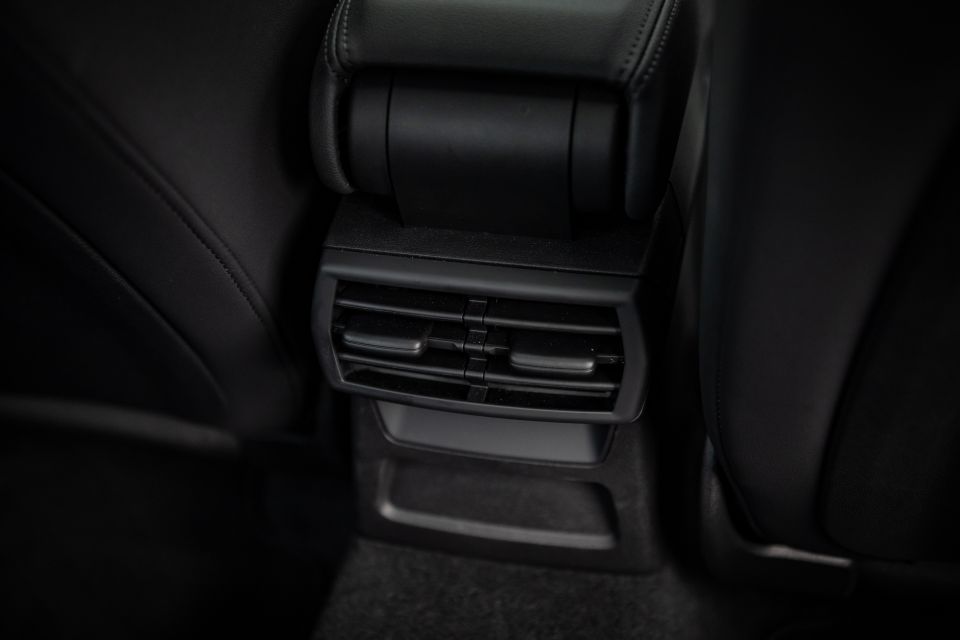
This car also has an optional opening glass sunroof and an auto-dimming rear-view mirror – believe it or not, that’s not standard.
There’s leather seat trim and the seats are comfortable, but they’re not as supportive as if you were to step up to the next model up, which gets sports front seats.
With the driver’s seat set for my position (at 182cm/6’0”) my knees were touching the hard plastic-backed seat ahead of me, but I had a decent amount of toe room, and my head was just brushing the liner as well.
So if you have a family of six-footers, this won’t be the ideal vehicle for your needs – any tall or occupants might need to watch their head getting in and out of the backseat. If you just have some youngsters however, or if you don’t have kids, it could be perfectly fine for your needs.
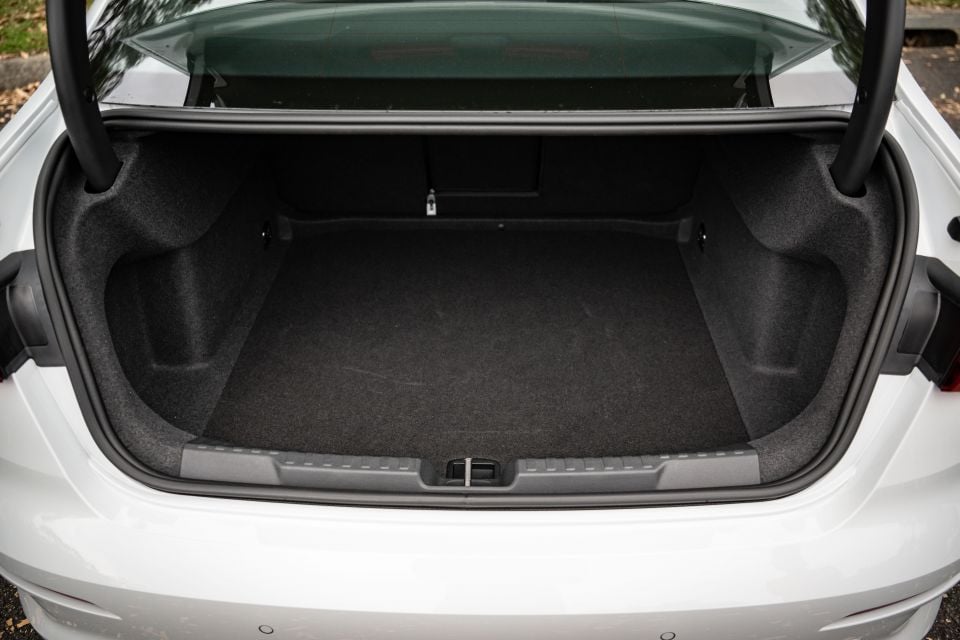
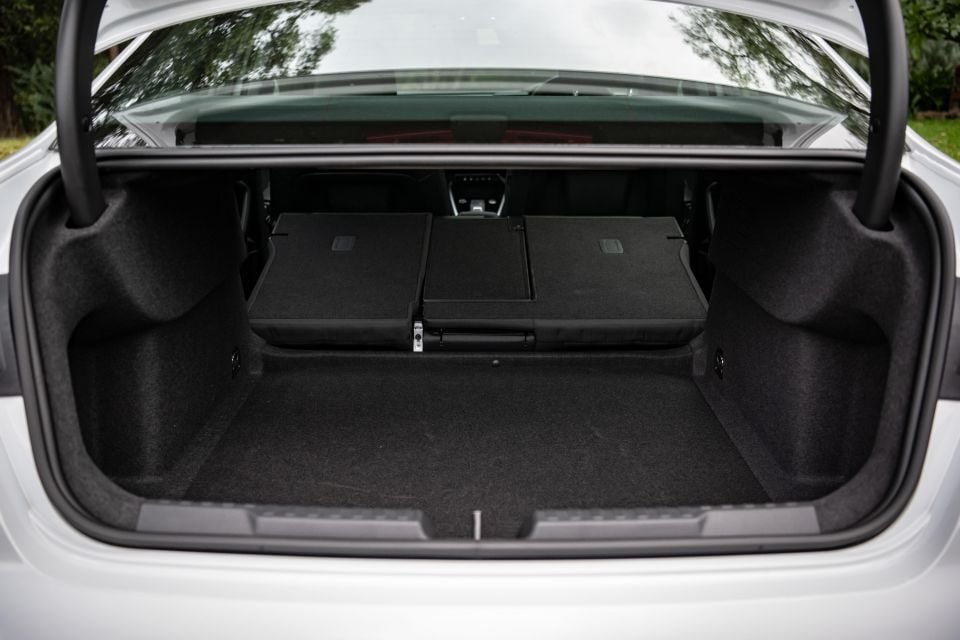
There’s no storage on the seatbacks, though the MY24 A3 picks up rear USB-C charge ports (our car was an MY23 example). You also get bottle holders in the doors and a flip down armrest with cupholders. You can also fold the centre part of the seat down to act as a ski-port.
There are ISOFIX points in the window seats and three top tethers as well, as well as directional air vents – a win for all back-seat bandits.
The boot space is generous for the size of car, with 425 litres of capacity for this spec (the higher-grade A3 Sedan 40 TFSI quattro has less space). It’s a deep cargo area, but while there are some eyelets, there are no nets or pockets on either side.
Surprisingly, there’s also no space-saver spare wheel under the boot floor, despite the fact that there is space for one. You just get a tyre repair kit.
I’m focusing mainly on the Audi A3 35 TFSI here, and it comes powered by a 1.5-litre turbocharged four-cylinder petrol engine with a 48V mild-hybrid system producing total outputs of 110kW of power (5000-6000rpm) and 250Nm of torque (1500-3500rpm).
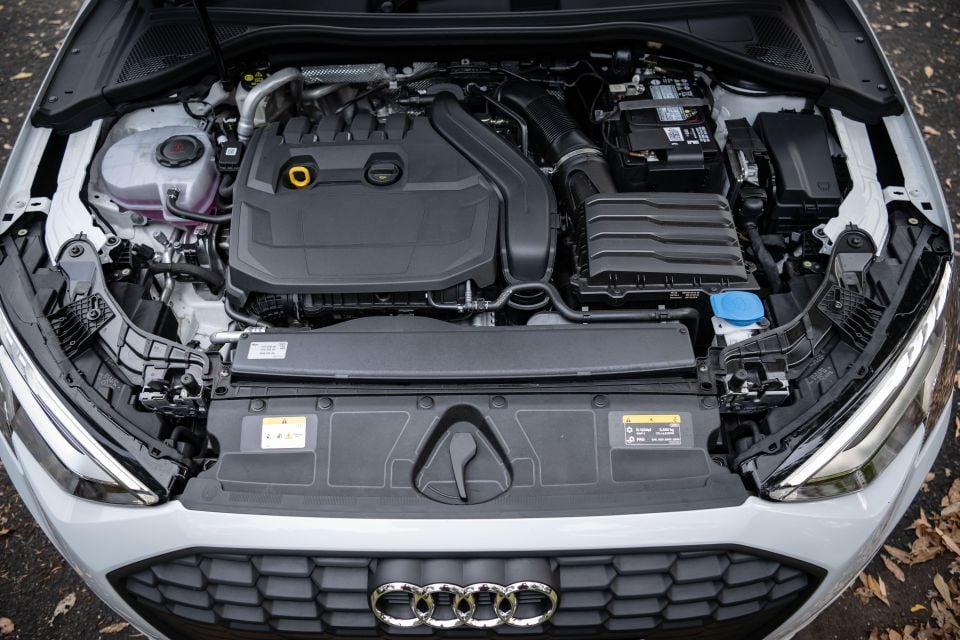
It has a seven-speed S tronic dual-clutch automatic transmission, and is front-wheel drive. Audi claims the A3 35 TFSI can do the 0-100km/h sprint in 8.4 seconds.
If you need more grunt and all-wheel drive, there are three choices at higher prices that can get you that in the A3/S3/RS3 lineup. But unless you’re an enthusiast, you might not actually need to spend up.
The official combined cycle fuel consumption figure for the A3 35 TFSI sedan is just 4.9 litres per 100 kilometres. I didn’t quite achieve that during my testing, but a displayed return of 5.9L/100km still impressed me across a mix of different driving situations.
There’s a 50-litre fuel tank, and it needs 95 RON premium unleaded petrol.
I don’t honestly think that most people will need more grunt than what’s on offer in the 35 TFSI model.
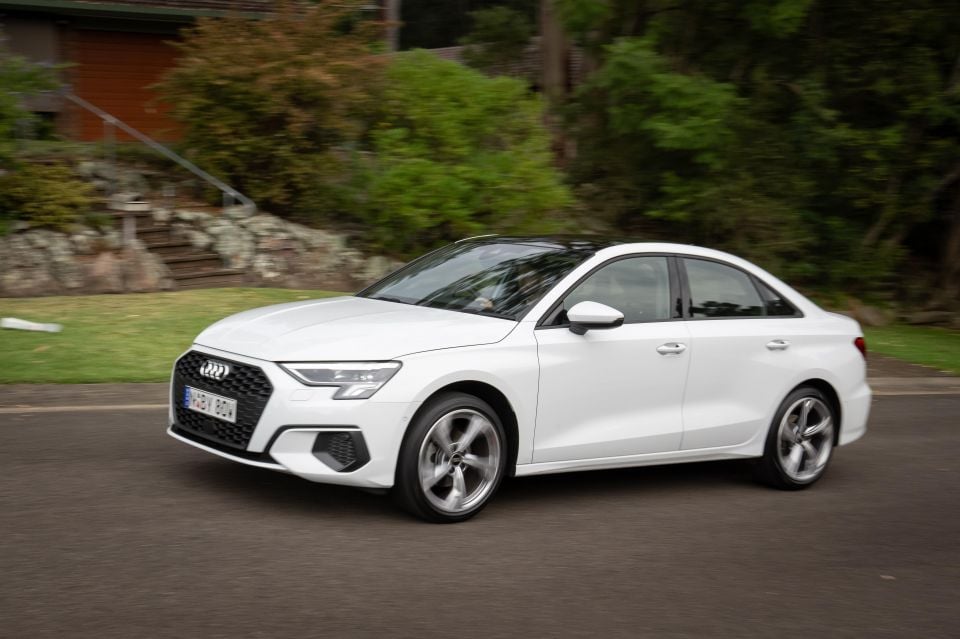
There’s ample power and torque from this 1.5-litre turbo-petrol engine, and the torque is the real sweet point with it. There’s a good amount of urge from a standstill that pushes you away from a line with assertiveness, rather than screaming at you to try and get the job done.
However, the front tyres can be overwhelmed by the torque at times, and tyre squeal is something you will experience in different scenarios – and not just in the wet.
When you take off from a standstill and turning a corner it’s something you might encounter. That wouldn’t necessarily be enough of a concern for me to say ‘you need to buy the quattro version instead!’… unless you’re a leadfoot, then it might be the smarter choice.
What is also impressive is the way the 48-volt mild-hybrid technology has been integrated into this car, where it primarily works to assist in traffic situations – where the engine start-stop technology does its thing.
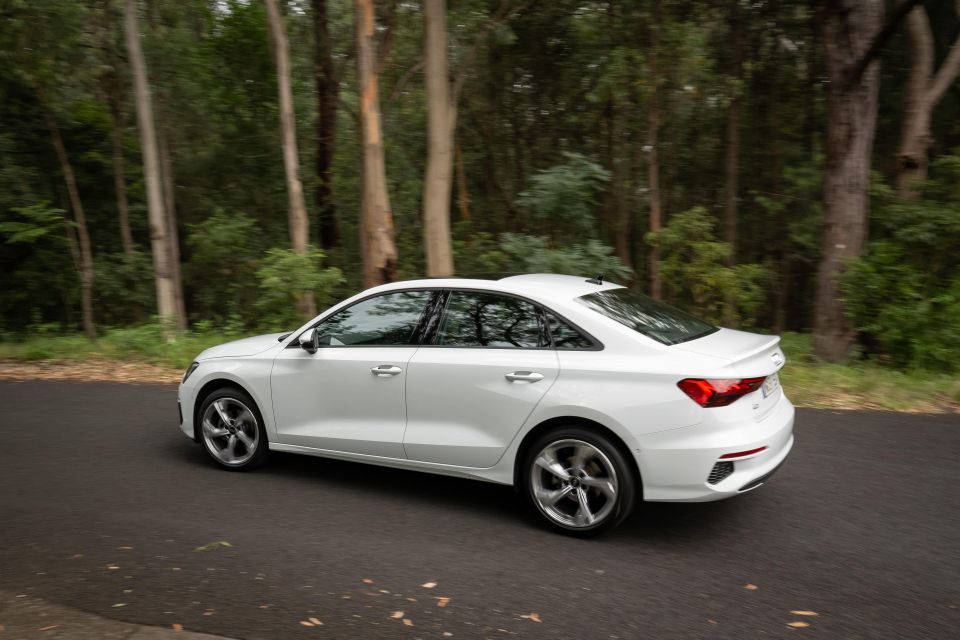
In those situations, it helps smoothen things out when you’re getting away from the standstill – far smoother than in years gone by where a dual-clutch automatic and downsized turbo engine would have felt a little bit sluggish or laggy.
It does get away pretty quickly – as quick as a conventional auto transmission would – and the gearshifts are snappy as you move up the rev range as well.
I have noticed, though, that this car does have a tendency to engine brake excessively, and in those situations, the revs can rise to less-than-luxurious levels for a long periods of time – it sounds like you’re revving the guts out of the car when it’s just trying to slow you down by using the engine exhaust braking.
It’s an efficiency thing, and the car also has cylinder-on-demand tech, which can run it on two cylinders instead of four in light-throttle or coasting situations. It’ll also coast, where the revs will drop to idle speed when you lift off.
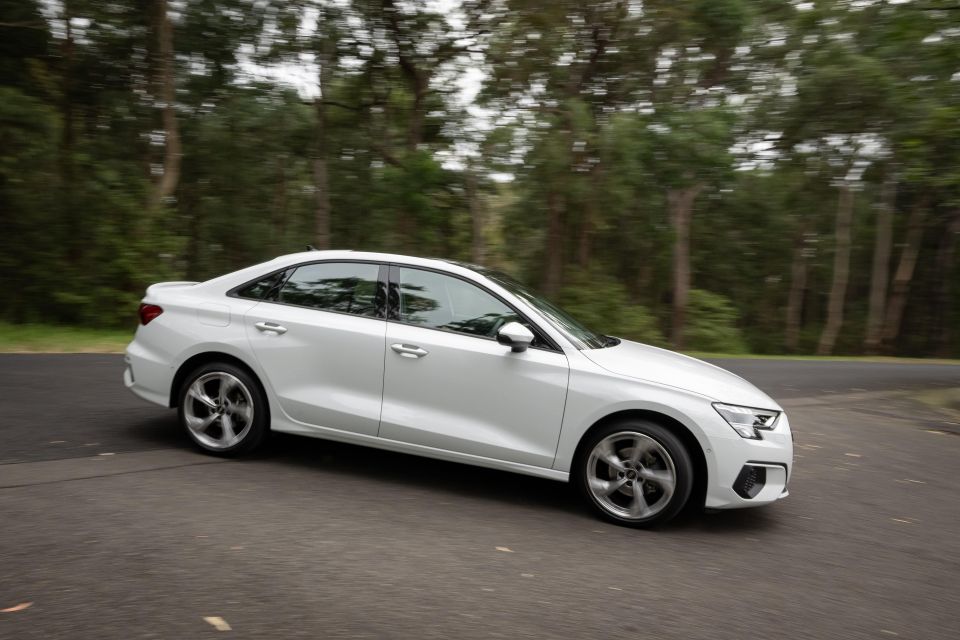
The ride comfort is exceptionally good. You never feel like you’re getting bumped around or jostled in your seat in this car, even over wretched surfaces on back suburban streets and lumpy bumpy high-speed roads.
Even over sharp edges, the car maintains a level of poise, and in fact, it feels very nicely tied down and handles corners beautifully. All without all-wheel drive.
The steering has a nice heft to it on centre and while it is not the last word in driver involvement, it is perfectly suited to this sort of application in terms of the responsiveness, and also the fun factor in corners. Yes it’s fun enough, I would say, but it also nails the brief for parking duties because it’s not too heavy and very easy to manipulate.
Perhaps the biggest question mark over this car is the refinement levels – the noise intrusion certainly could be lessened.
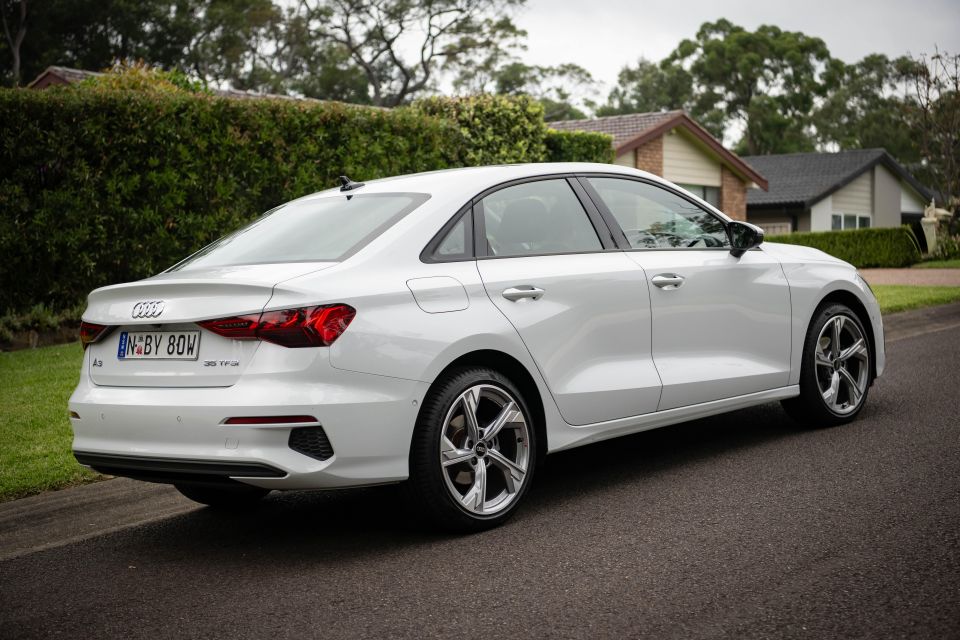
There is notable engine noise emanating into the cabin in mixed scenarios, and while the noise isn’t annoying it just isn’t quite as hushed as you might expect for a luxury car. Likewise there is loud tyre roar on rougher surfaces like coarse-chip roads, which makes up the majority of Australian open road driving situations.
So my advice is to make sure you test it in the scenarios in which you will be driving it before you sign a sale contract.
I always like to consider what you get in a base model like this, and what you’d get if you could justify adding a bit to your repayments… like, is it worth sacrificing a take-away coffee or two a day to get up to the next level.
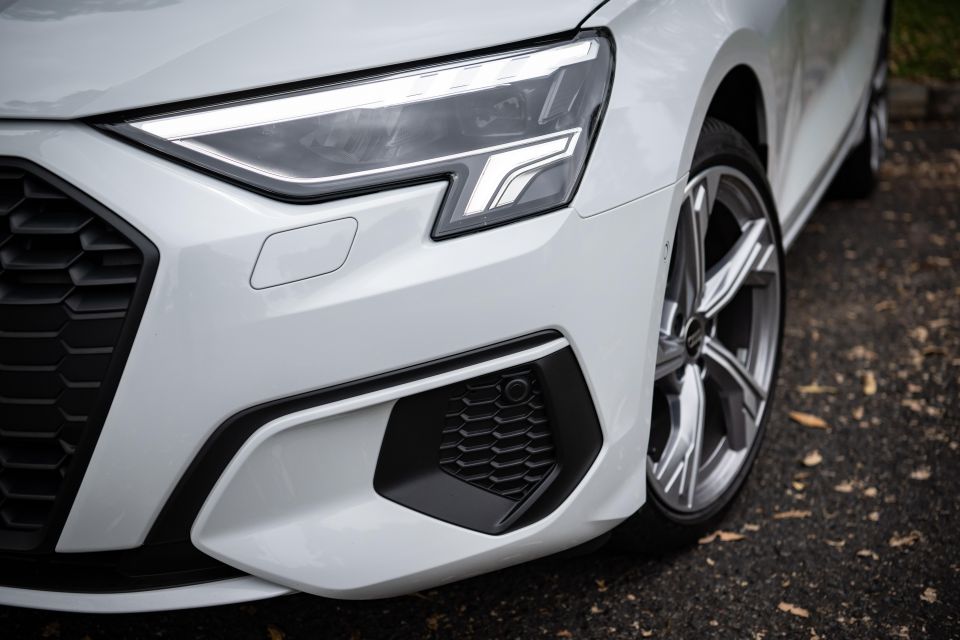
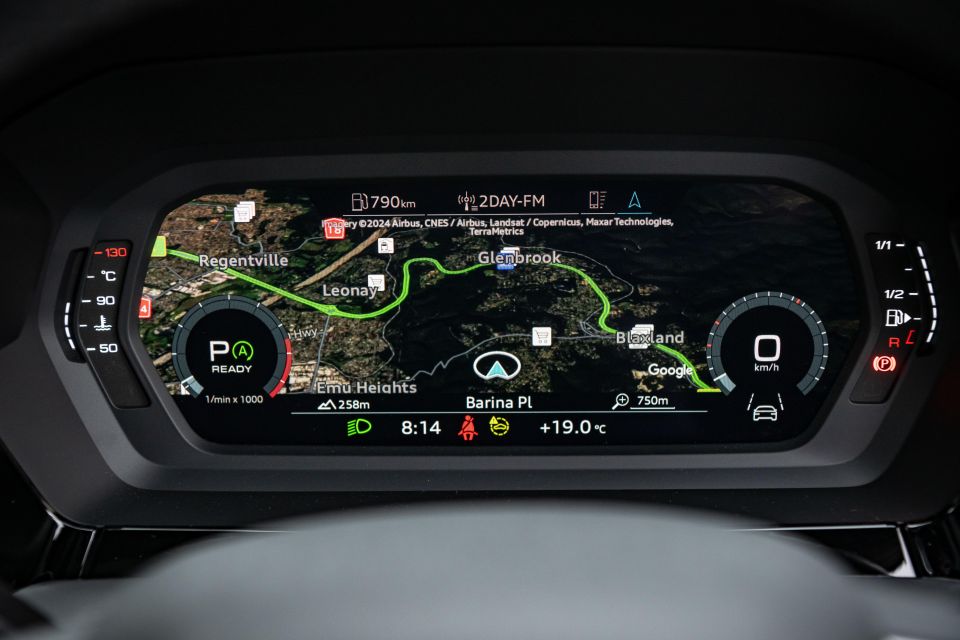
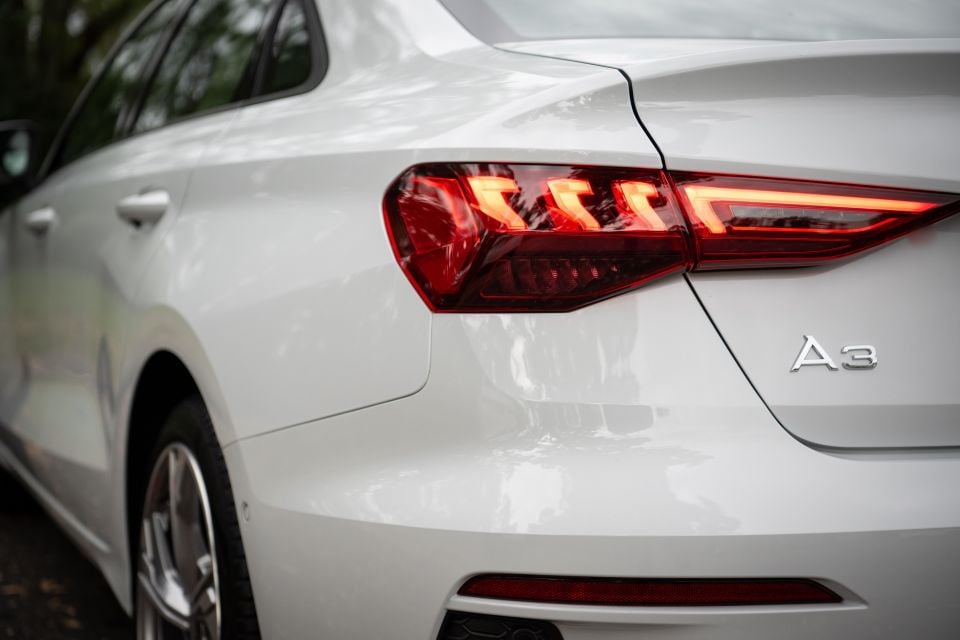
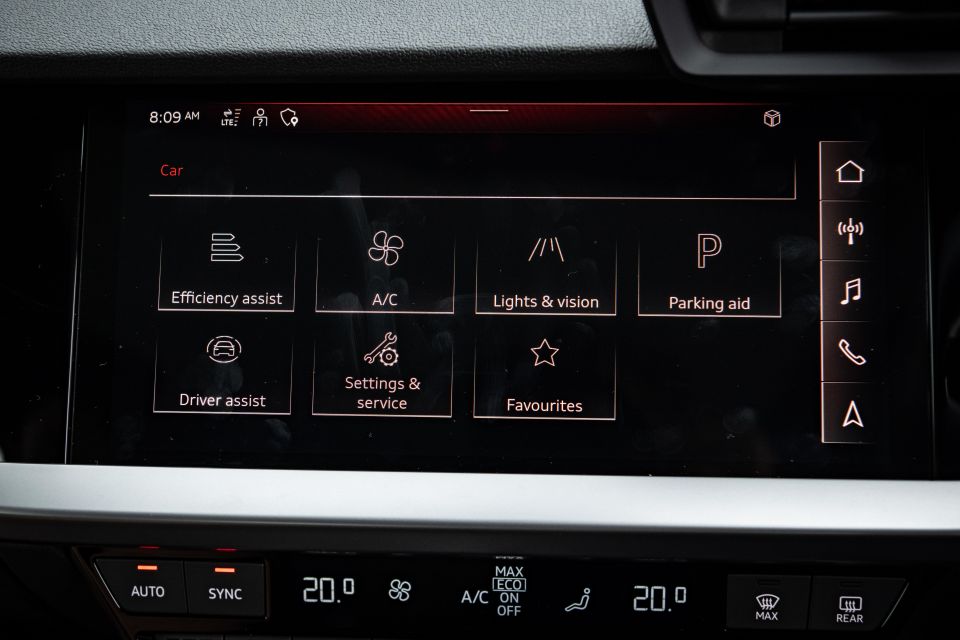
A3 35 TFSI highlights:
A3 40 TFSI quattro adds:
Only the front-wheel drive versions of the Audi A3 have a five-star ANCAP safety rating based on Euro NCAP testing conducted in 2020.
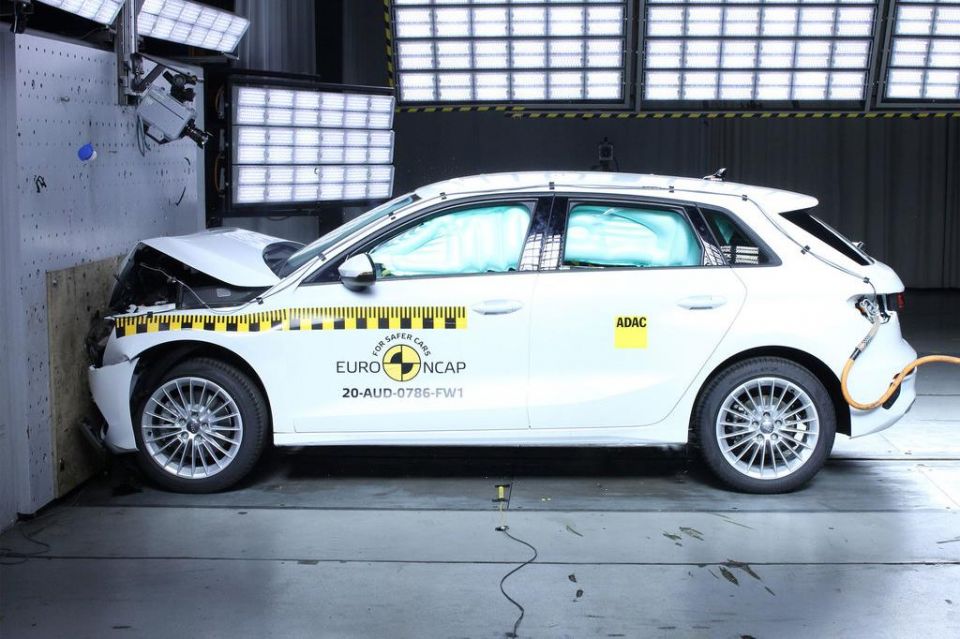
Where expert car reviews meet expert car buying – CarExpert gives you trusted advice, personalised service and real savings on your next new car.
In that testing it received an adult occupant protection score of 89 per cent, child occupant protection score of 81 per cent, vulnerable road user protection score of 68 per cent, and a safety assist score of 73 per cent.
Standard safety equipment includes:
A surround-view camera is available, but not standard, across the lineup. You do get it standard on the flagship RS3, though. Seven airbags are fitted – dual front, front side, front centre, and full-length curtains.
The Audi A3 is covered by a five-year, unlimited-kilometre warranty.
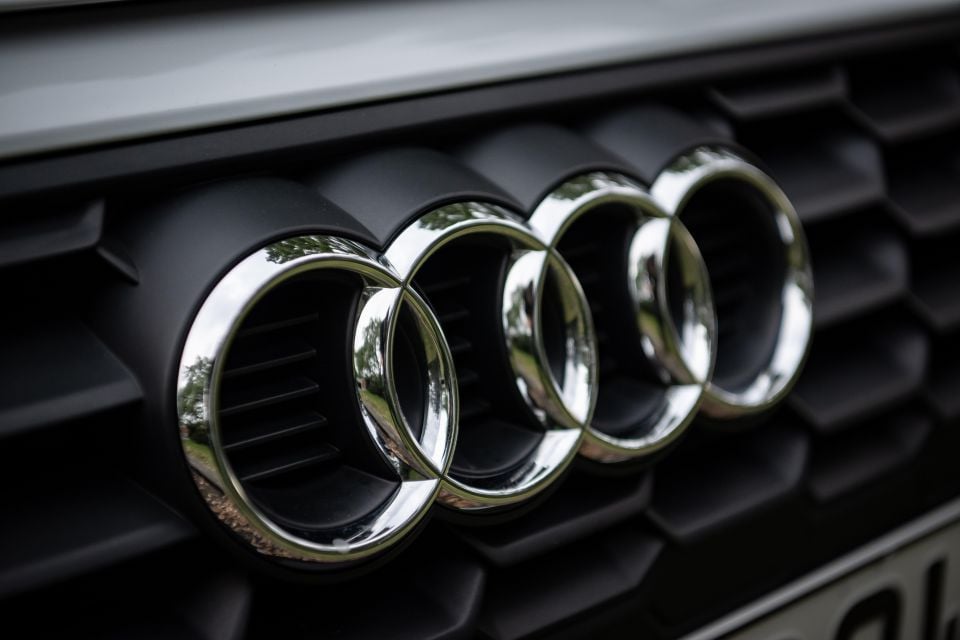
Logbook servicing is required every 12 months or 15,000km, whichever occurs first.
Audi offers a five-year service prepaid plan, and for this grade it costs $2520, or an average of $404 per year for maintenance. That’s not bad, considering a 2.0L petrol Kia Cerato is more expensive over a five-year period ($406 per year!).
If you service with Audi, you also get your roadside assistance topped up each time.
Buy your new car without the stress. It's fast, simple and completely free.

Great service from Travis and team, second time I have used this business would not hesitate to recommend them to anyone
Craig C.
Purchased a Ford Ranger in Sunshine Coast, QLD
CarExpert helped Craig save $7,224 on his Ford Ranger, now let us save you on your next new car.
Get your BEST priceThe Audi A3 has a lower buy-in price, but needs some options to make it feel a bit more special.
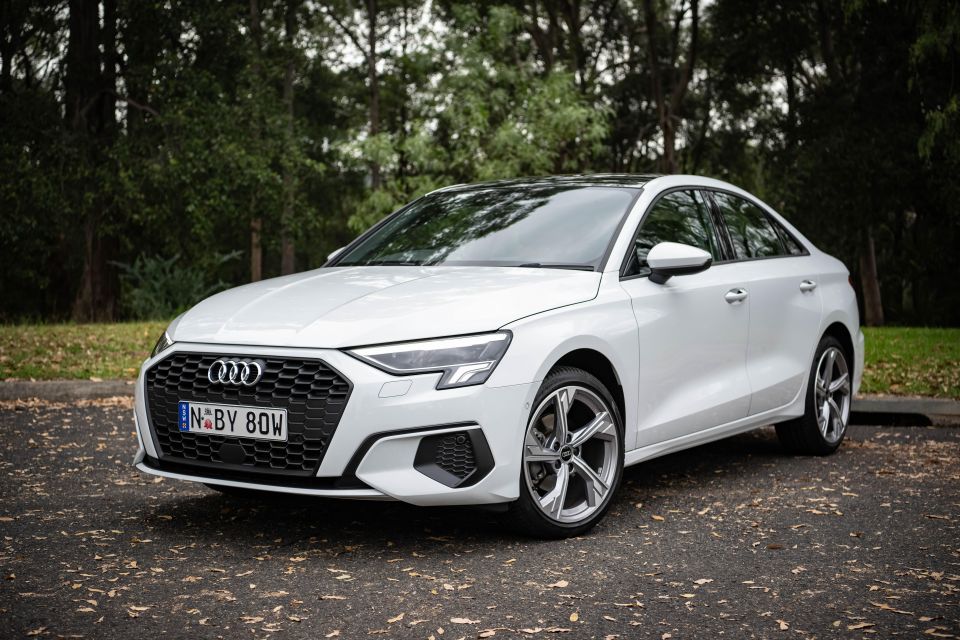
Even so, I think for less than $60,000 before on-road costs, an optioned-up A3 35 TFSI Sedan like this one makes a strong argument for those who are looking to get into something stylish and smart looking.
Whether it’s worth jumping now or waiting for the refreshed model? Well personally, I think I like the look of the current one more… but you tell me your thoughts in the comments section.
Click the images for the full gallery
MORE: Buy an Audi A3 MORE: Everything Audi A3
Where expert car reviews meet expert car buying – CarExpert gives you trusted advice, personalised service and real savings on your next new car.
Matt has more than a decade of experience in automotive journalism, and loves exploring the pros and cons of new cars, delving into deep-dive industry stories, and going for a drive just for the fun of it.


Max Davies
5 Days Ago


Max Davies
4 Days Ago
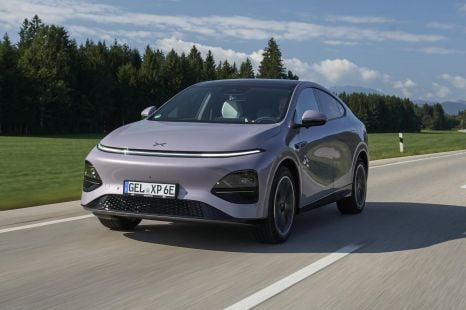

Neil Briscoe
3 Days Ago
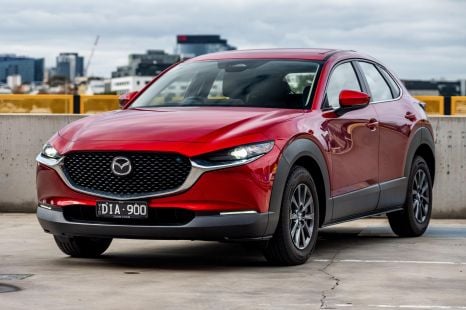

Max Davies
2 Days Ago
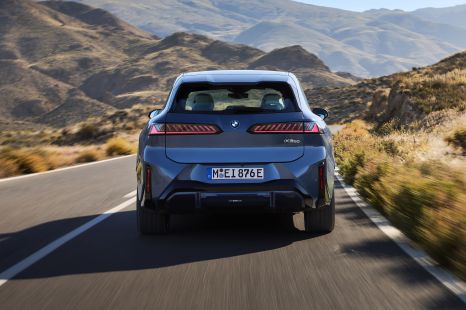

Alborz Fallah
11 Hours Ago
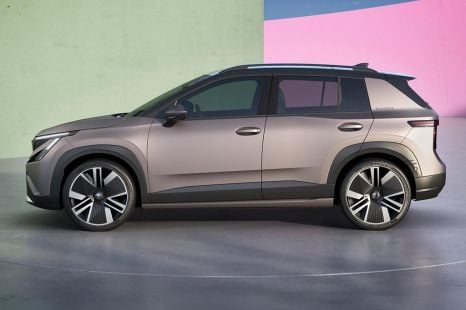

Damion Smy
11 Hours Ago